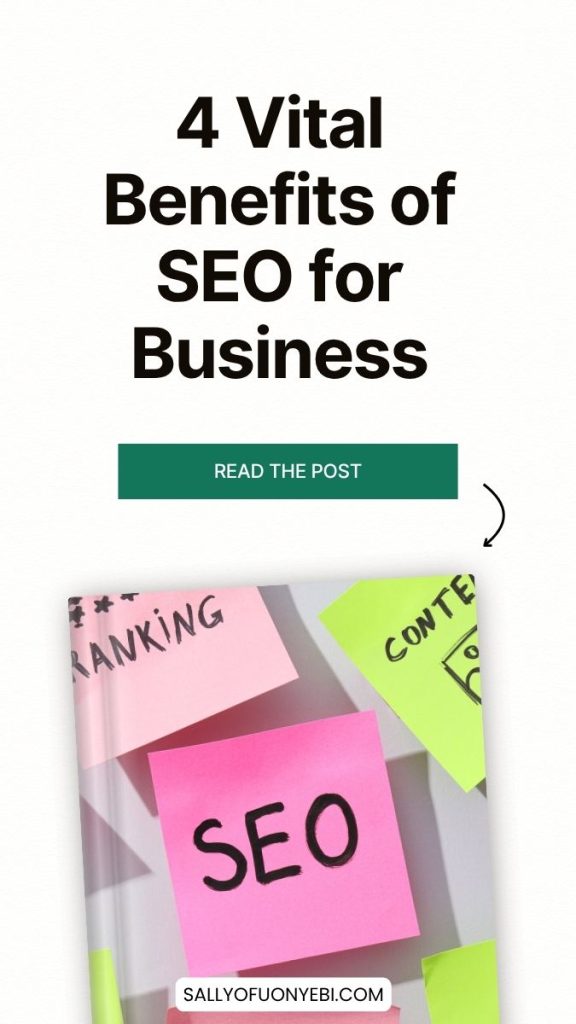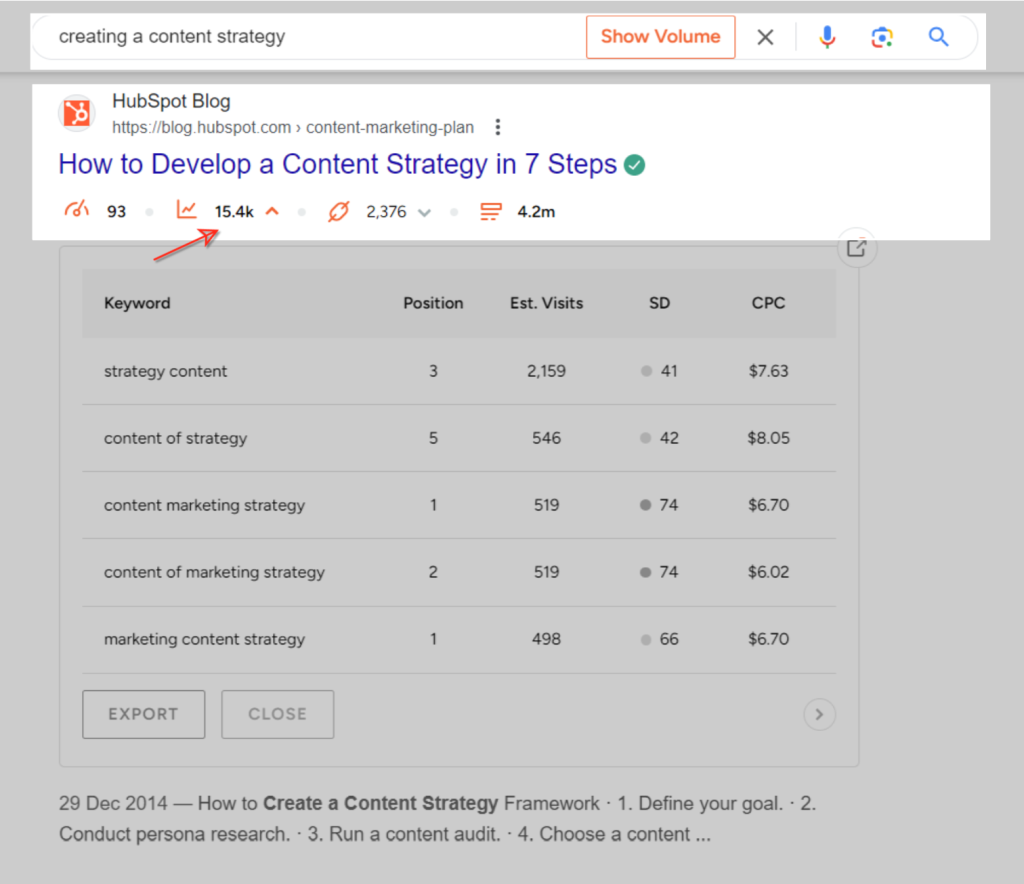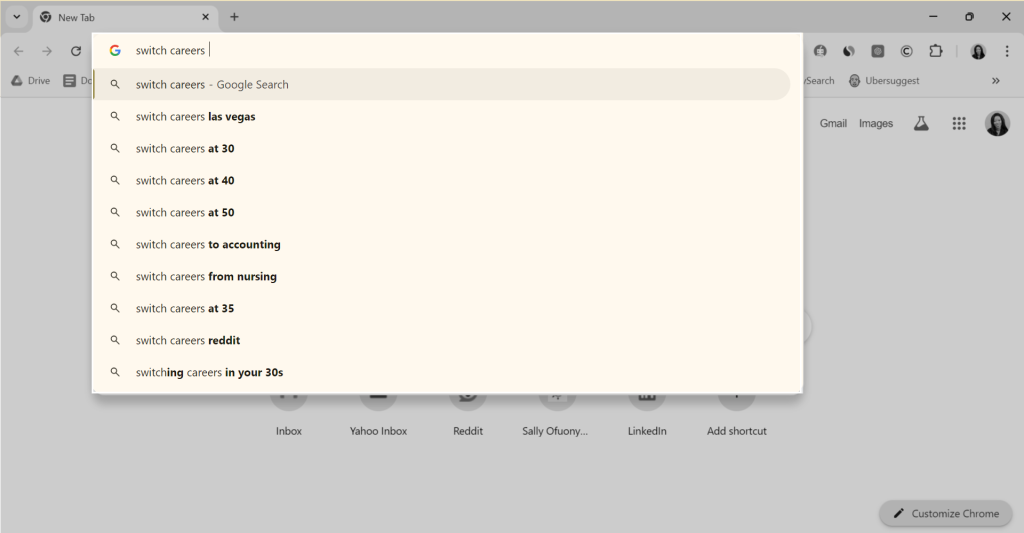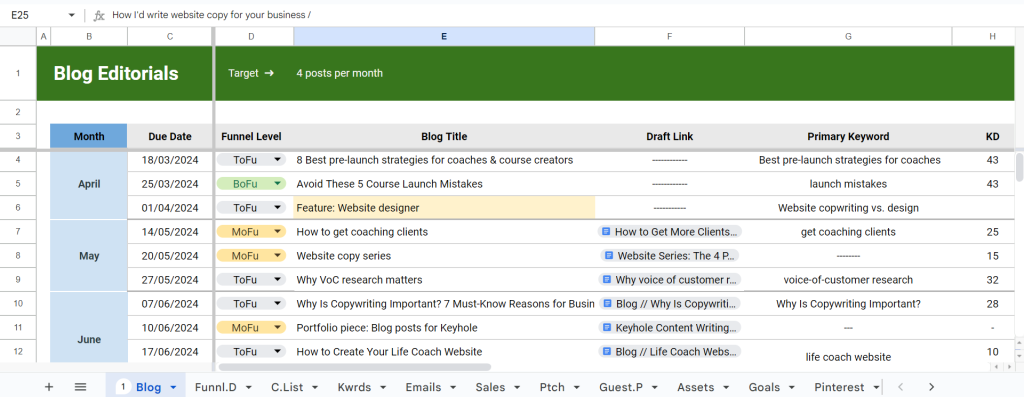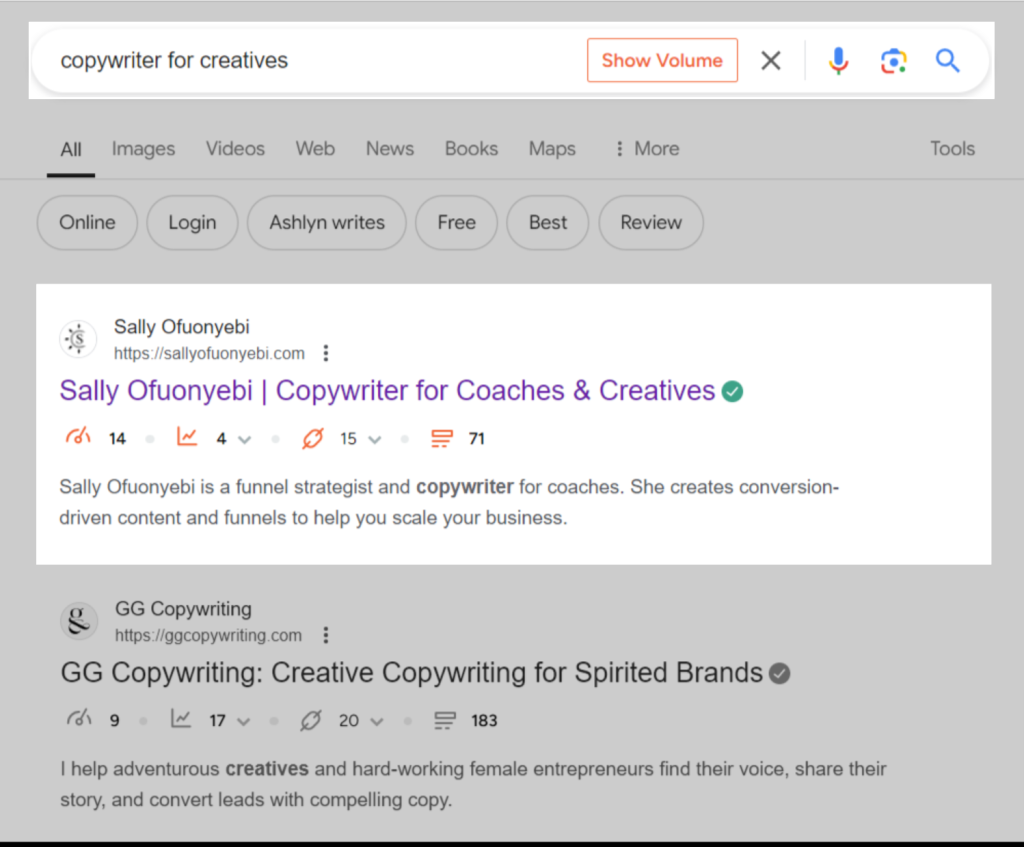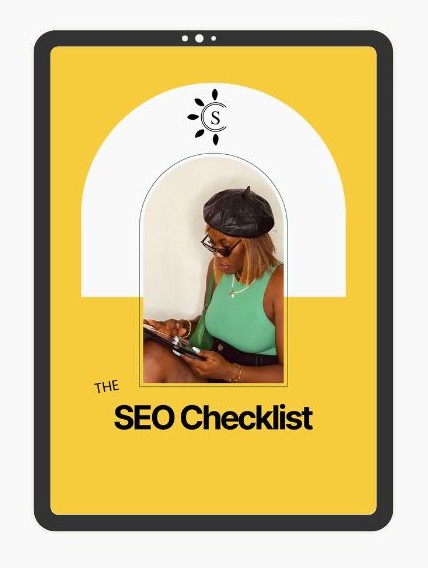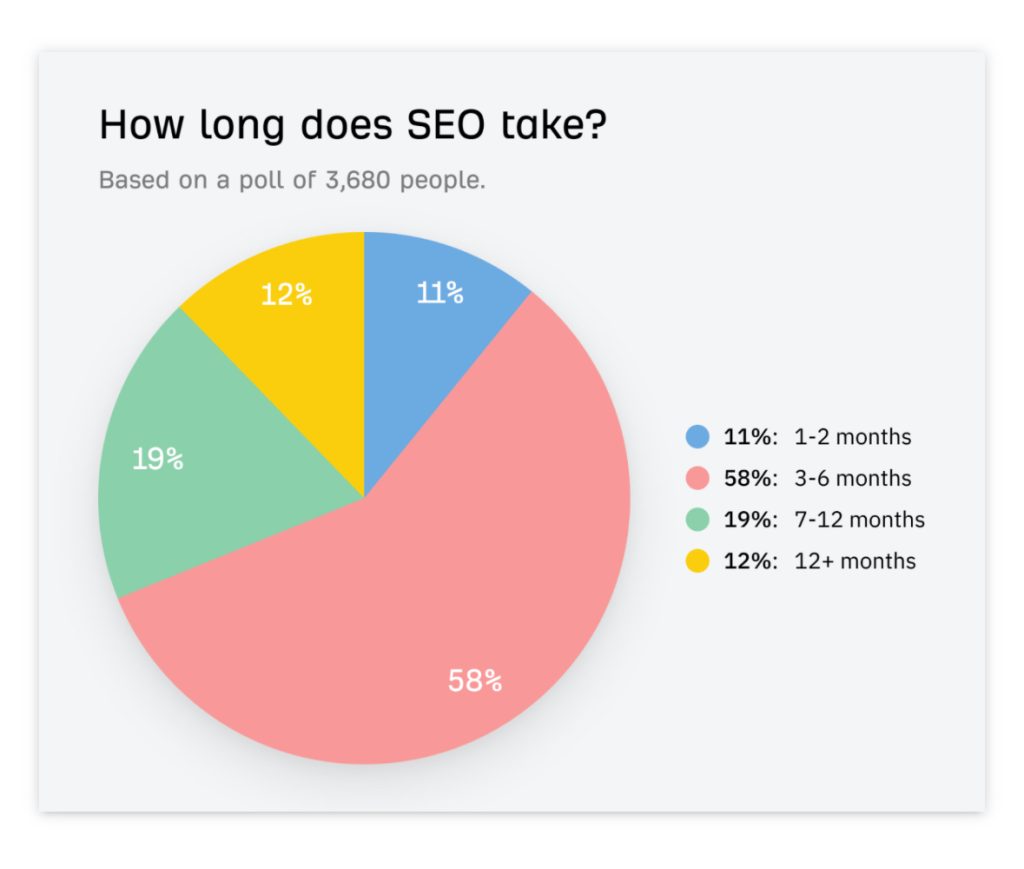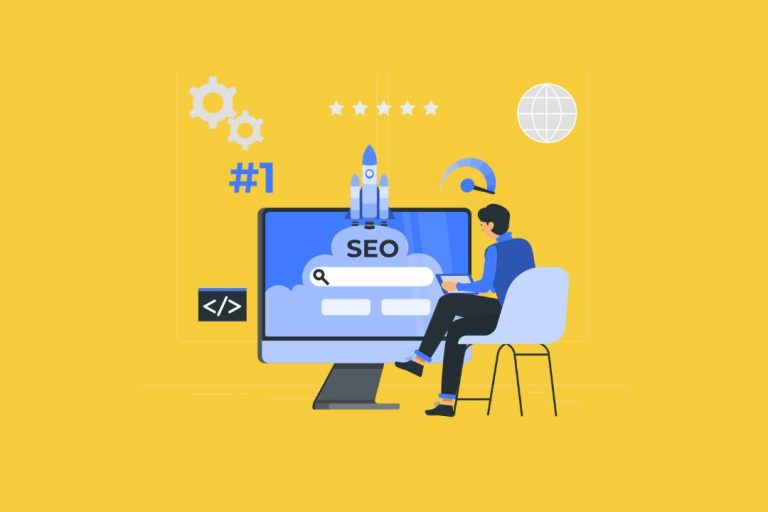SEO for Beginners: The Ultimate Guide to Doing It Right

Want to grow your visibility and conversions with SEO? Here’s the ultimate SEO for beginners guide you need.
Tired of publishing blog posts that no one sees?
Good! Because, today, you’re going to learn how to do SEO right for your business.
It took me years, several blog posts for software as a service (SaaS) companies, and a lot of testing to get to this level where I get inquiries from people who found me on the first freakin’ page of Google.
I have been in your shoes, and wish the articles I read earlier were stupid-easy. It’d have saved me countless headaches and maybe some years.
So, if you’re non-tech savvy or completely clueless about ranking(like I was), this SEO for beginners guide is for you.
What is SEO for Beginners?
SEO stands for Search Engine Optimization. It’s the process of optimizing your website and content so search engines like Google can find, understand, and recommend it to users.
Here’s a quick breakdown of how SEO works:
- People search for things (keywords) on Google.
- Google scans its index to find content that best matches that keyword.
- It ranks those pages based on relevance, authority, and user experience.
Quick note: Your target should be to get on page 1 of Google. It’s the only page that matters when it comes to getting traffic. People barely ever check the other pages. I call them “Search Neverland.”
Understanding Keywords and Search Intent
We can’t talk about SEO without keywords and search intent. They are the two core points where it all begins.
A keyword is simply the word or phrase someone types into Google—and behind every keyword is intent.
There are 3 types of search intent:
- Informational: “What is SEO?”
- Navigational: “Ahrefs blog” or “Pinterest login”
- Transactional: “Best SEO course,” “Buy vegan candles”
Always match your content to what the searcher wants, not just the words they typed.
Your goal should be to satisfy the intent behind a query so that when searchers click your website, they can hang around and take action, rather than “X” out because your content isn’t relevant to their needs.
Why is SEO Important?
If there’s anything you’ll invest in that will give your business a high ROI in months and years to come, it’s SEO.
Here are four reasons why you need to start taking SEO seriously:
Organic Traffic & Leads
If you want consistent, long-term traffic and quality leads without paying for ads, SEO is your best friend. It’s free exposure.
From the screenshot above, his term alone is estimated to bring in over 15,400 search traffic monthly.
Since the average website conversion rate is between 2-5%, this means HubSpot can hypothetically add 308 people (at a 2% conversion rate) to their funnel from that one blog post every month.
Authority Building
The higher your SEO power, the higher your chances of ranking for multiple terms related to your business.
When this happens, you become an authority—in the eyes of both your readers and search bots—on the subject matter.
Let’s say you’re a course creation expert, and someone looking for tips on how to create their first course lands on your guide that includes the how-to, tools, system, and marketing tips on how to do just that. What happens?
You become the go-to on the topic. They’ll start going straight to your website content instead of first searching on Google.
More Sales and Revenue
Generating leads for your business is good, but turning these leads into paying customers? That’s the real deal.
Here are different ways SEO can help you do this:
Scenario 1: You show up on the SERP for a transactional keyword. The searcher lands on your page -> they add to their cart or buy through your link -> you make a sale.
Scenario 2: Or, the user searches for a more information-type keyword -> they read your content and sign up for your list -> after bingeing your blog and emails for two weeks straight -> they’re convinced they want to work with you -> you make a sale.
Digital Assets
One of my blogger friends disclosed that she’s got a couple of websites worth over $75,000.
And this case study by Authority Hackers, where they sold an 18-month-old website for $400,000, shows that a website optimized for search engines is an asset.
How to Do SEO for a Website
Now that you know the benefits of SEO for your business, let’s talk about how to do it right.
Here are five essential tips to do SEO for a website step by step?:
1. Research Your Ideal Client
Before you get caught up in keywords and technical stuff, start with the most important part of the process.
Knowing who you want to show up for, aka your ideal client.
Having a thorough understanding of your target client ensures you don’t create content amiss.
- What problems are they facing right now and why?
- What goals matter to them the most?
- How can you solve their problems so they can achieve their goals?
For instance, if you’re a career coach, your ideal client might be an employee feeling stuck in their career, considering a career change, or wanting to step into a higher position. LinkedIn might be their main social platform, and they might be scoring websites like Glassdoor and Indeed.
When you know exactly who they are and what they want, this makes it easy to create content they can relate to.
If you’re looking for a straightforward guide that’ll help you develop your perfect-fit client avatar, check out the Ideal Client Handbook.
2. Perform Keyword Research
Once you know who you’re trying to reach, it’s time to find out the questions they are asking and the problems they want solutions to.
“Keyword research” is not as complex as it seems.
Think of it as listening to your ideal client conversations. Essentially, you want to find phrases that:
- Are relevant to your niche
- Have decent to large search volume, but aren’t too competitive
- Show clear intent to seek solutions related to what you provide
There are several SEO tools—both free and paid—to help you with optimizing your website.
As a career coach, you might find search queries and keywords like “how to get a remote job,” “how to get promoted at work,” or “switch careers at 40.”
Pro tip: Look for long-tail keywords. These are longer, more specific phrases that might have less search volume but often convert better.
For instance, “career coach” might be too competitive for your website as a beginner, but “career coach for healthcare professionals” could be more favorable. And in optimizing for longer tail keywords, you have the chance of ranking for broader terms.
3. Organize Your Ideas & Findings
The next thing is to organize and compile your findings and ideas.
As busy professionals, it’s easy for keyword and optimization ideas to get lost in the shuffle if you have no proper organization system.
Do this by creating a content calendar to simplify and track what to do.
Instead of just listing random ideas in your calendar, group them into themes and assign search terms that align with your coaching expertise. Then, make a schedule for your posting frequency and style.
Looking for a simple content calendar template to streamline your SEO content process? Grab this Google Spreadsheet Template.
4. Write Valuable SEO Content
Starting an SEO blog for your business is one of the most results-driven ways to grow your business.
But start small and stay consistent. You can increase your pace as you go.
Here are some tips for writing your website content:
- Give actionable and fresh advice
- Write for humans, not the algorithm
- Address the search intent behind the keyword. Is the searcher looking to learn more, get recommendations, or buy?
- Include the keyword multiple times in your content, naturally
- Share your unique perspective and experiences
- Use your tone of voice
For example, if you’re writing a post on “how to build confidence at work,” don’t just list generic tips.
Share a client case study, your unique coaching approach, and specific exercises you use to help clients build confidence. This not only helps with SEO but also shows you know your stuff.
5. Create a System to Convert Visitors
SEO is just the traffic driver. You still need a path to turn readers into clients.
And that’s something many business owners miss. Your SEO effort shouldn’t end with website traffic. You need conversions.
For this, you’ll need a funnel system.
All the SEO traffic in the world won’t help if you can’t convert the traffic and leads you get. A website funnel helps you capture and turn visitors into hot leads and actual clients.
To create a simple funnel you can implement right now:
- Create a valuable free resource (like a worksheet or mini-course)
- Place it in attention-grabbing places on your website
- Build an email sequence to nurture subscribers into exclusive readers and clients
When you do all this, it’s not just SEO anymore. You’re building a sustainable way to grow your business.
Essential SEO Tips for Beginners
Now that you understand the big picture of SEO, let’s talk about how to actually apply it to your website.
Here’s a checklist of foundational, beginner-friendly SEO practices that will set you up for long-term success:
1. Start with Keyword-Rich, Intent-Based Content
Every page or blog post on your site should target one primary keyword and a few relevant secondary keywords. But don’t just stuff them in—use them intentionally.
How to do it:
- Include your main keyword in the title, URL, meta description, first paragraph, and headers (H2/H3s)
- Sprinkle related terms (LSI keywords) naturally throughout your content
- Write for humans first, not algorithms
Pro tip: Use long-tail keywords for easier ranking and higher-quality traffic.
2. Structure Your Page for Skimmability
Google loves well-structured content—and so do your readers.
Here’s how to format like a pro:
- Use one H1 tag for your main title
- Break your content into logical sections with H2s and H3s
- Use bullet points, bolding, and short paragraphs (2–4 lines max)
- Add images or graphics to break up text blocks
3. Optimize Title Tags, Meta Descriptions & URL Structure
This is what shows up in Google’s search results, so make it count.
- Title tag: Clear + clickable + includes your main keyword
- Meta description: Enticing summary that makes people want to click
- URL: Short, readable, and includes the target keyword
To ensure that you’re doing this right, install the RankMath plugin. It turns green when you get an SEO score of 81 or above.
4. Use Internal and External Links
Links are important for several reasons.
They boost site credibility, user experience, and overall SEO health. They also help Google understand topic relationships.
There are two types of links to boost your website’s SEO power.
Internal links: Link to related pages or blog posts on your own site (great for UX and keeping visitors around longer)
External links: Reference from reputable, high-authority websites. It increased your domain authority (DA) and signals to Google that your site is a trusted expert.
5. Optimize Your Images for SEO
Images don’t just make your content look good. They’re also SEO assets that can be ranked, shared, and referenced.
Optimize like this:
- Use descriptive file names (e.g., seo-beginners-guide.jpg instead of IMG0123.jpg)
- Add alt text that describes the image contextually and include the keyword
- Compress large images to reduce file size and improve load time
Doing all this helps with image search rankings, accessibility, and overall site speed.
6. Improve Site Speed and Mobile Friendliness
A slow site = high bounce rate.
Readers hate that. And Google hates it when users don’t have a nice experience while browsing a site.
Ways to speed things up:
- Use Google’s PageSpeed Insights to test your site’s performance
- Compress images and enable lazy loading
- Choose a fast, lightweight website theme
- Avoid too many plugins or bloated code
Bonus tip: Make sure your site is fully responsive across all devices. Over 60% of Google searches happen on mobile.
7. Install an SEO Plugin
If you’re using a WordPress website, do yourself a favor and install reliable SEO plugins.
My favorite of all is Rank Math.
Compared to others like Yoast SEO (which focuses on on-page content) and Mosterspeed insights (which focuses on analytics), Rank Math is a perfect all-in-one SEO tool you can totally use for free. See my review here.
Want a more detailed list of what to do to start ranking on page 1? Get the guide below.
Get the Ultimate SEO Checklist
Want to boost your organic traffic and start ranking for your money keywords? Learn exactly what to do (and you don’t even have to be tech savvy).
How Long Before You Start Seeing Results From SEO?
According to Ahrefs, it takes between 3-6 months on average to start seeing results for your SEO efforts.
But this is only an average estimation. It can take a shorter or longer time, depending on the factors that affect SEO and ranking.
Some of these factors include:
- Difficulty of the search term (keyword difficulty)
- How optimized your content is (content optimization)
- How many posts you have around the topic (topical authority)
- The quality of link juice your site has (backlinks)
- The structure of your post (page formatting)
- How relevant the content is (search intent)
Overall, SEO is a long game with long-term gains. So, stay consistent and put out quality content.
SEO for Beginners: Is It Worth Doing?
Absolutely! SEO is evergreen, cost-effective, scalable, and high-converting. As you’ve seen in the guide above, SEO is all shades of good for your business.
You don’t need to be a tech expert to make it work. You just need a plan, a little patience, and consistent action. Feel free to use all or a mix of these SEO for beginners tips to position your brand for increased visibility, authority, and revenue.
Looking to step up your ranking game and drive more organic traffic to your site?
Or, if you want help mapping out your SEO strategy from scratch, book an intensive session with me. Let’s create a content strategy that gets you ranking and brings in your dream clients.
Love this ultimate guide to SEO for beginners? Save it for later and share with others.


